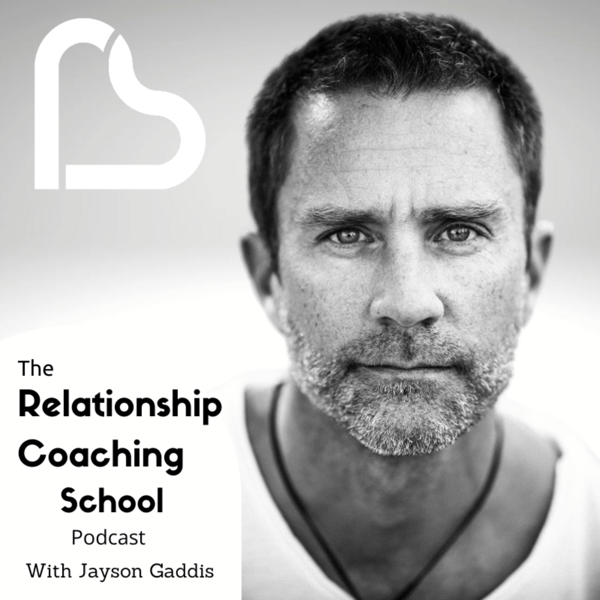Stephen Porges On How Facial Expressions Impact Your Relationships - Relationship School Podcast EPISODE 247
Relationship School Podcast
Jayson Gaddis
4.6 • 981 Ratings
🗓️ 5 August 2019
⏱️ 71 minutes
🧾️ Download transcript
Summary
Are you a caregiver who is on the verge of burnout? What is the difference between the central nervous system and the autonomic nervous system? What happens if I misread a person's face, especially my partner? Listen to this fascinating interview with Polyvagal theory's founder, Stephen Porges.
Shownotes:
- (1:45) Episode 116: Polyvagal theory, safety in relationships.
- (4:26) Why knowing how to read other people matters.
- (9:50) How our physiology affects how we perceive others, and how others perceive us.
- (17:50) Arguments from a biological perspective.
- (20:15) Co-regulation.
- (25:05) How learning can be affected by a teacher’s physiology.
- (27:40) Reading an audience when speaking in public.
- (32:15) DPIR enrollment.
- (34:10) Difference between the central nervous system and autonomic nervous system.
- (42:05) How stress affects to our bodies.
- (50:00) About depression.
- (55:45) About exercise.
- (56:50) How taking care of others can impact your life.
- (1:01:20) Final thoughts.
- (1:06:40) Action Step.
Transcript
Click on a timestamp to play from that location
| 0:00.0 | There is no such thing as an argument because they cannot be one. They just create problems because all they do is ramp up people's physiological states. |
| 0:08.8 | So they lose the capacity to have compassion and awareness of the other. It's all about what narrative they can use to justify their behavior. the Hey, what's up friends? |
| 0:39.0 | Hey what's up friends? |
| 0:39.7 | Welcome back to the Relationships Schools podcast here, |
| 0:42.4 | where we help you be a smart |
| 0:43.5 | human being smart couple smart individual grateful to be back here talking at |
| 0:50.0 | you and having your ears bending to listen. Thanks. This podcast is all about long-term |
| 0:57.9 | partnership and successful relationships in general and we never got a class on this and so this is your class. Okay, over and over again now. |
| 1:08.0 | We've been going on four years here. Holy shit. Pretty cool. |
| 1:12.0 | So thanks for supporting us along the way. |
| 1:15.0 | If you haven't left of, you know, you know, if you haven't left us a review on iTunes or Apple |
| 1:22.1 | Podcasts, Google Play, St Stitcher etc. Please do it helps. Thanks |
| 1:28.4 | Okay, my guest today is Dr. Stephen Porgis. This is a very dense one. Okay for those |
| 1:38.6 | neuroscience nervous system geeks this This is very dense, but don't let that thwart you, okay? |
| 1:47.2 | This podcast is all about facial expressions and what happens in the body and why it's so important to watch the tendency to |
| 1:56.1 | miss read other people like I do. I miss read people all the time because I'm sensitive. I see your flat affect, I see your |
| 2:07.0 | furrowed brow, I see your, and people missread me all the time. It's just going on all the time, right? And sometimes we make it about ourselves |
| 2:18.4 | as we talk about in this podcast. Okay, if you haven't listened to the first episode where we get more into the |
| 2:23.4 | polyvago theory and safety in relationships, please listen to that one. It's |
| 2:28.1 | episode number 116. Okay, so you can just Google Jason Gatiss Stephen Porges, Smart Couple 116, or you can just go to |
| 2:36.5 | YouTube, same thing, type in Stephen Porches, Jason Gattis, or just, it's on our website, our relationship school.com, |
| 2:44.6 | forward slash podcast 116. |
... |
Please login to see the full transcript.
Disclaimer: The podcast and artwork embedded on this page are from Jayson Gaddis, and are the property of its owner and not affiliated with or endorsed by Tapesearch.
Generated transcripts are the property of Jayson Gaddis and are distributed freely under the Fair Use doctrine. Transcripts generated by Tapesearch are not guaranteed to be accurate.
Copyright © Tapesearch 2025.

